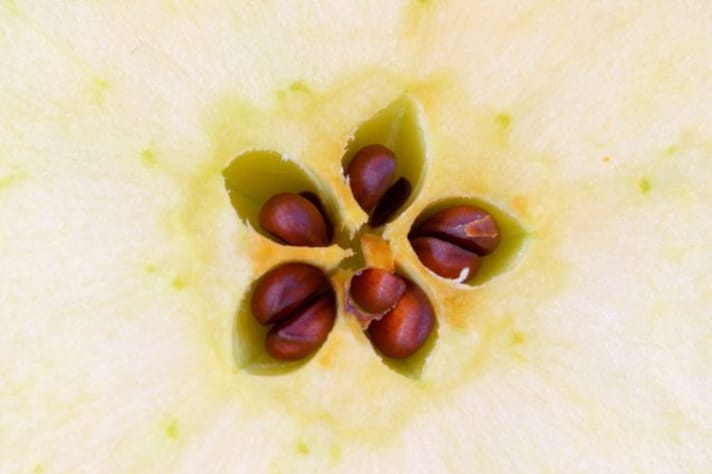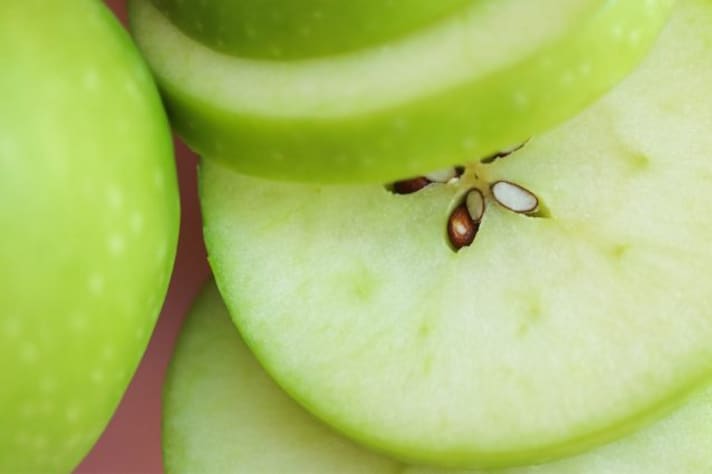
When eating an apple, many of us casually discard the seeds without a second thought. However, some people are surprised to learn that apple seeds actually contain cyanide, a potent toxin. Does this mean eating apple seeds is dangerous? In this article, we’ll explore what’s really inside those tiny seeds, whether they pose a health risk, and how much you’d need to consume for it to be harmful.
Why Apple Seeds Contain Cyanide
Apple seeds contain a compound called amygdalin, which is harmless in its natural form. However, when the seeds are chewed or crushed, amygdalin is broken down into hydrogen cyanide, a toxic chemical. Cyanide is infamous for being poisonous in large amounts, but the amount present in apple seeds is quite small.
The cyanide in apple seeds is only released when the seeds are broken or chewed. If swallowed whole, the seeds usually pass through your digestive system without being absorbed, meaning they don’t release cyanide into the body. It’s the crushing of the seeds that triggers the release of the toxic compound.

How Many Apple Seeds Are Harmful?
While it’s true that apple seeds contain cyanide, you would need to consume a large number of them for it to be harmful. The average apple contains about 5 to 8 seeds, and it would take hundreds of seeds (or more) to pose a real risk to human health. For example, an adult would need to chew and ingest around 150 to 200 seeds for cyanide poisoning to become a concern.
Accidentally eating a few apple seeds is unlikely to cause any harm. Your body can detoxify small amounts of cyanide, and the concentration in apple seeds is low enough that it would take an excessive amount to be dangerous. However, it’s still best to avoid intentionally consuming large quantities of seeds.

What to Do If You Eat Apple Seeds
If you accidentally eat a few apple seeds, there’s no need to panic. Most seeds pass through the digestive system without breaking open, and even if chewed, the cyanide levels are too low to cause serious harm. However, if you’ve eaten a significant amount of seeds and experience symptoms, it’s best to seek medical advice.
While it’s rare for someone to consume enough apple seeds to be harmful, it’s a good idea to remove the seeds when preparing apples, especially for children. For those who juice or blend apples, removing the seeds before processing is also a simple precaution to take.
;Resize,width=767;)
